News
Built on Trust
Company leaders reveal secrets to a buzzing, productive workplace. Hint: It’s more than perks.
By Seattle Mag January 14, 2025
This article originally appeared in the January/February 2025 issue of Seattle magazine.
At Pot O’ Gold Coffee Service, company leaders were pleasantly surprised when employees told them they enjoyed after-hours events with colleagues. At Fully Integrated Team HR — which has a remote workforce — employees often schedule in-person working sessions, sometimes with their children in tow. Salespeople who close a big deal ring a loud gong at Seattle Chocolate Co. and tell the team about their win.
According to human resources consultant O.C. Tanner, successful companies create a sense of purpose, opportunity, appreciation, success, and well-being. “However, as the boundaries between professional and personal life increasingly blur, employees also crave balance — a need met by flexibility enriched with fairness that respects individuals’ unique circumstances and contributions,” Tanner says.
A Gallup poll found that only 33% of employees were engaged last year, leading to about $1.9 trillion in lost productivity. Each percentage point represents approximately 1.6 million U.S. employees.
Seattle Business magazine asked executives at six of the highest-scoring companies in its annual Best Companies To Work For survey to discuss the shared values, beliefs, and practices that shape the behavior and interactions of employees at their organizations.
They are:
 Blake Jones
Blake Jones
Owner, vice president of sales and marketing, Pot O’ Gold Coffee Service, Seattle.
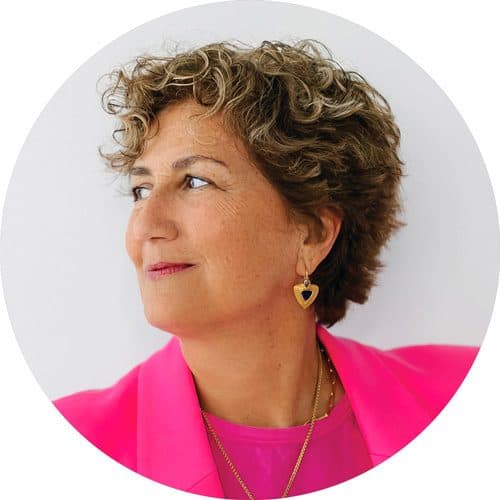 Jean Thompson
Jean Thompson
Seattle Chocolate Co. owner and CEO.
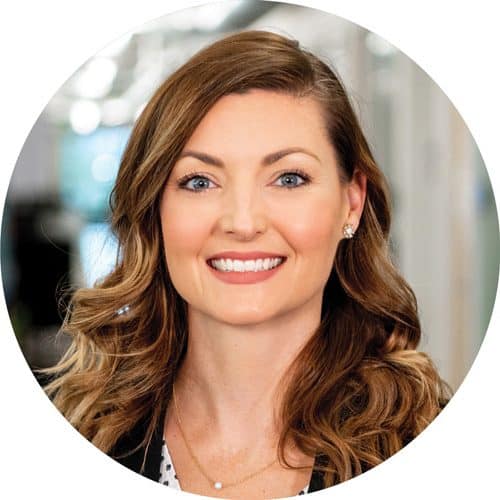 Molly Matthews
Molly Matthews
CEO at Seattle software company Pushpay
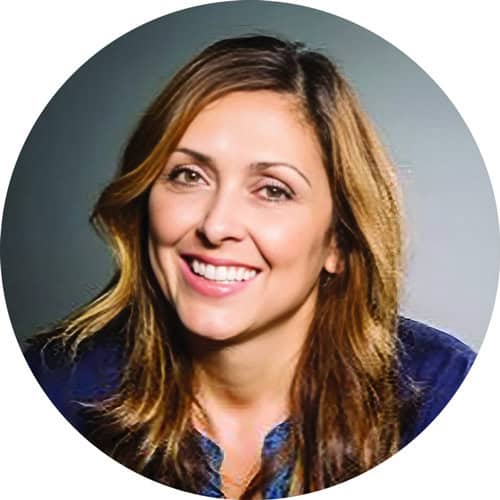 Leah Kyle
Leah Kyle
Head of people and culture at Seattle tech company Omnidian
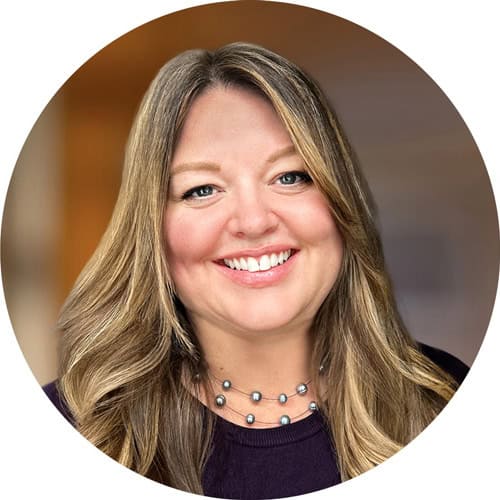 Amanda Mayo
Amanda Mayo
Founder and CEO at Maple Valley-based Fully Integrated Team HR.
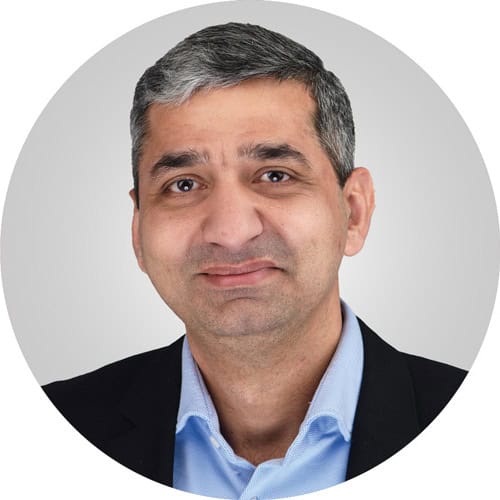 Ritesh Daryani
Ritesh Daryani
Chief people officer at Seattle tech company Edifecs.
How do you measure culture at the company?
Thompson: Turnover, tenure, laughter, attendance, engagement, the feel. In other words, it isn’t all measurable. A lot of it is instinct, listening, and paying attention.
Matthews: We measure culture through a variety of touchpoints, including our twice-a-year employee engagement survey through Culture Amp, which collects employee feedback on what is going well and what we can improve. On average, we see a 90%-plus participation rate each engagement survey, which is considered world class. Additionally, we measure engagement by monitoring employee retention rates, onboarding feedback from new hires, exit interview feedback from recent departures, and the level of participation in cultural initiatives.
Daryani: We run periodic pulse surveys asking questions aligned with our People Experience Model. We also measure and review hiring, attrition, performance data, participation in learning and development, and use of our recognition programs.
Kyle: We measure culture through regular feedback: a 30-day survey for new hires, biweekly pulse surveys, and an annual wellness survey. Living our core values, like “We Invest in Our People,” is key. We prioritize internal growth, filling over 20% of positions internally this year alone.
Mayo: Through direct feedback, frequent pulse surveys, and regular engagement check-ins. By creating a continuous feedback loop, we ensure employees feel empowered to share ideas, allowing us to gauge how well our values and initiatives resonate across the team.
How often does your team have conversations about culture?
Daryani: Culture is a living thing that needs to be nurtured and cared for — so we think about culture A LOT. Our HR team is actually called our People & Culture team — reflecting the importance we place here. We also recently hired a People Experience manager.
Jones: Often! We have weekly management and department meetings where culture and values are regularly discussed.
Matthews: Culture discussions are woven into our everyday life. We are consistently reviewing and adapting as the needs of our employees evolve.
“Culture is a living thing that needs to be nurtured and cared for — so we think about culture A LOT.”
— Ritesh Daryani, Chief people officer, Edifecs
Mayo: Culture is a consistent part of our conversations. Keeping culture at the forefront allows us to make timely adjustments that support a healthy, inclusive work environment.
Thompson: Culture relies on shared values. Ours are posted on the wall, and every week we nominate people for outstanding examples of them.
Kyle: Our People Team discusses culture and well-being nearly every day, while the executive team meets monthly to ensure our values are consistently reflected in every part of our organization. Biweekly, our WeGu (We Guarantee) committee — open to all employees — focuses on embedding DEI principles into our work.
What have you been able to do culturally that you once considered impossible?
Daryani: We built an on-site well-being center. We have a nutritionist the helps our associates eat healthy — she even cooks for us with foods we harvest from our on-site garden; also, a personal trainer, massage, kayaks and electric bikes to borrow, manicures and pedicures, and handmade afternoon tea and juice.
Kyle: Through anti-bias training, removing barriers to entry, and refining equitable hiring practices, we’ve made transformative progress. Today, we’re proud to have achieved gender parity across all levels, including leadership, and our workforce now reflects the racial diversity of the U.S. population
Mayo: Our connections have grown so organically that employees often organize their own in-person working sessions, bring their kids along, and even share vacation photos with the team.
Jones: I used to think that most employees just wanted to work, collect a paycheck, and skip after-hours interactions with coworkers, but I was wrong. As we’ve doubled our team over the past two years, we’ve also increased the number of after-hours company events.
Thompson: Maintaining our strong culture while half of our staff works a hybrid schedule seemed impossible to me before 2020. Even as we returned, it was a bit rocky as some people that had to be on-site all the time struggled with the difference. A key change in personnel (and) things took a turn for the better. Now it works well, and our culture has not suffered. In fact, people are so happy to have flexibility that their satisfaction with their jobs seems to have increased.
Matthews: Establishing a sense of community and connection as we continued to grow across multiple office locations.
Through two acquisitions we expanded our footprint by two offices and many remote employees. We’ve been intentional in prioritizing clear communication, fostering connection, and leveraging technology to preserve a unified, purpose-driven culture, which has been a significant achievement.
How do you hire or promote with tomorrow’s culture in mind?
Thompson: I try to interview every permanent hire to get a sense for what they want from their job and life. Just listening to them tell their story helps me determine how badly they want the job and how they might fit in.
Mayo: We hire and promote based on values like inclusion, integrity, empathy, and innovation.
Matthews: Candidates are evaluated based on their adaptability, drive, and commitment to excellence to ensure we are building a future-focused team for tomorrow.
Kyle: As we grow, we adjust hiring and promotion criteria to fit evolving needs, from hands-on builders to strategic leaders. Today, our focus is on those who can help us scale with efficiency and innovation.
Daryani: Our values drive and inform our actions and decisions. It’s how we create an inclusive culture.
What’s your in-office policy?
Jones: As an office coffee company, our success depends on people being present in the workplace rather than working from home. It wouldn’t align with our mission if we allowed our staff to work remotely.
Mayo: We’re proud to go beyond the trend of returning to the office. By fully embracing remote work, we provide our
consultants with the flexibility to work where they feel most effective and energized. This commitment enhances work-life balance and allows us to attract and retain top talent who appreciate autonomy and flexibility. Focusing on results over location enables us to bring our best to every client interaction.
Daryani: In late 2021, Edifecs announced a new, permanent work model that allows associates to work from wherever they think they are most productive. (It is) designed to eliminate the stress of commuting, enable associates to take time off to pick up their kids from school, or visit their physician. We understand life doesn’t stop when work starts.
Matthews: Pushpay embraces a hybrid work model and is committed to promoting a flexible and collaborative work environment. Depending on the role, most of our employees are in the office three days a week.
Kyle: Omnidian embraces flexibility with fully remote roles, complemented by a vibrant co-working space in downtown Seattle for local employees. For those near employee clusters, we host annual gatherings to foster in-person connection.
How does your company support personal and professional growth for employees?
Kyle: Our Sol-mate program pairs new hires with mentors to help them integrate into our culture, while “All Team Access” and “Executive Access” programs provide cross-functional learning and leadership insights.
Matthews: We offer a range of dynamic learning and development programs and events. We focus on a wide range of topics that address both personal and professional growth opportunities.
Daryani: From day one, we provide a robust onboarding program that includes assigning a buddy to each new hire for their first 12 weeks. We believe in a personalized approach.
Jones: We maintain an open-door policy, seeking employee opinions, encouraging open dialogue, and empowering employees in the decision-making process. Additionally, we understand that life outside of work is a priority, and supporting this balance ultimately fosters a more positive work environment.
Thompson: We believe everyone should have the freedom to be; the freedom to become; the freedom to fade; the freedom to fail.
Mayo: Every consultant meets regularly with a certified coach, dedicating time to refine skills, set goals, and gain valuable insights. Alongside coaching, we offer a range of professional development perks.
How do you foster collaboration and innovation across departments?
Mayo: Collaboration is woven into our approach through an active, behind-the-scenes consultant chat where ideas, experiences, and solutions are shared. With nearly 450 years of combined senior HR experience, we regularly tap into our team’s expertise.
Daryani: Our mentor programs provide opportunities for employees to learn from each other and grow together. We also organize remote events like our Halloween Hangout and Cyber Escape Room to keep the team engaged and connected, even when working remotely.
Jones: It’s essential that our workflow enables every department to collaborate effectively. For example, if a driver notices that a machine at an account needs assessment, our techs can guide them through the process over the phone to save time.
Matthews: We regularly bring together employees cross-departmentally. We invest in internal initiatives to help inspire a culture of collaboration and innovation, including a yearly hackathon event, which encourages collaboration across the entire organization.
Thompson: Every week we have a leadership meeting where everyone reports on what they are working on, things they need help with or questions or areas where they need help. We also have a weekly product meeting with all concerned people present.
How do you support employee mental health and well-being?
Daryani: Our office is conveniently located near Mercer Slough, with paths throughout for walking and biking. We also offer bikes and kayaks for outdoor activities, as well as yoga and meditation sessions.
Thompson: If someone is struggling, we help them. That might be a leave of absence where we preserve their job while they seek help. There is no shame at our company about this, and each situation is handled individually.
Mayo: Regular sessions with an internal coach offer personalized check-ins, ensuring consistent support. Our strong focus on belonging fosters an environment where everyone feels valued and supported.
Matthews: In the U.S., we have 100% employer-paid premiums. Part of our U.S. medical benefits includes covering in-network outpatient mental health office visits at 100%.
Kyle: Omnidian’s wellness programs, like “Spring Into Wellness,” offer step challenges, art shows, and volunteer events to encourage self-care. Our #omnidian-wellness Slack channel creates a supportive space for sharing, while Focus Fridays minimize meetings so employees can wrap up their week with balance.
Jones: By offering a positive work environment, excellent health care benefits, structuring for a work/life balance, and providing a pet friendly environment.
How do you celebrate wins?
Thompson: We have company-wide parties three times per year. Twice a year, we award the “Meet the Achiever” trophy and prize to four or five standout employees, nominated by anyone in the company. They are publicly recognized and celebrated at parties. We ring a gong when a big sale is made or milestone met, so the person who has achieved the goal can announce it to anyone within earshot. We have weekly callouts in my email for people who have performed in a standout way or exemplified our values: “the Jean’s list.”
Kyle: We celebrate wins and build engagement through tailored recognition and team-building activities. Managers can organize quarterly team celebrations with options like virtual games or meal gatherings to create connection.
Mayo: Promotions, work anniversaries, and special accomplishments are highlighted in our monthly newsletter, while daily recognition reinforces our appreciation and keeps our team engaged.
Jones: We have various awards given throughout the year, including weekly achievement awards, an employee of the month award, yearly awards, and several leadership awards. Throughout the year we also have multiple company events.
Matthews: Monthly, via peer nomination. Annually, we recognize five individuals for their commitment to living out
our core values: “People, Teachable, Excellence, Simplicity and Generosity.”
Daryani: Each year we host an Annual CEO Values Awards event to celebrate and honor the individuals and teams that model our values. Edifecs also has a reward and recognition program.
“Regular sessions with an internal coach offer personalized check-ins, ensuring consistent support. Our strong focus on belonging fosters an environment where everyone feels valued and supported.”
— Amanda Mayo, Founder, CEO, Fully Integrated Team HR
Please list a few perks you provide to employees.
Daryani: Edifecs’ headquarters is home to one of the largest living walls in the Seattle area, with more than 220 plants. The company has hundreds of additional plants in offices and common areas. It increases oxygen levels and draws the tranquility of nature into community workspaces.
Matthews: CEO book club: Pushpay will purchase the e-book of any business or personal development book an employee would like to read. Additionally, our WLEAD ERG (which focuses on building female leaders) hosts an annual book club focusing on connection and growth by reading and discussing a book focused on that year’s theme for development. Free parking and on-site gyms. Hybrid work.
Jones: Friday catered lunches. A well-stocked breakroom with coffee, tea, snacks, and soft drinks. Seattle Kraken season tickets. Free use of company delivery vehicles on the weekends if needed for moving purposes.
Kyle: Perks include 12 weeks of paid parental leave, a $500 annual learning stipend, quarterly bonuses, stock options, and a four-week sabbatical leave after four years.
Thompson: Tons of free chocolate to eat, plus half off chocolate for purchase!
Mayo: Our biggest perk is a flexible work model that empowers employees to design their work-life balance.
What advice would you give to companies that want to improve their culture?
Jones: First and foremost, build trust with all employees.
Thompson: Culture comes down to how you treat each other. The important things are not perks or pay, but respect, trust, shared values, positive attitudes and empathy. It is essential to have people who want to be here and be part of the team.
Daryani: Be authentic. Measure and nurture culture. Support holistic well-being.
Matthews: Focus on genuinely supporting employee growth and connection to the company’s mission. Establishing clear values and reinforcing them through meaningful policies, transparent communication, and openness to feedback is key to creating a culture of engaged employees.
Kyle: To improve culture, start by genuinely valuing your people. Build an environment where employees feel seen, respected, and empowered to thrive.
Mayo: Start by listening to your team.